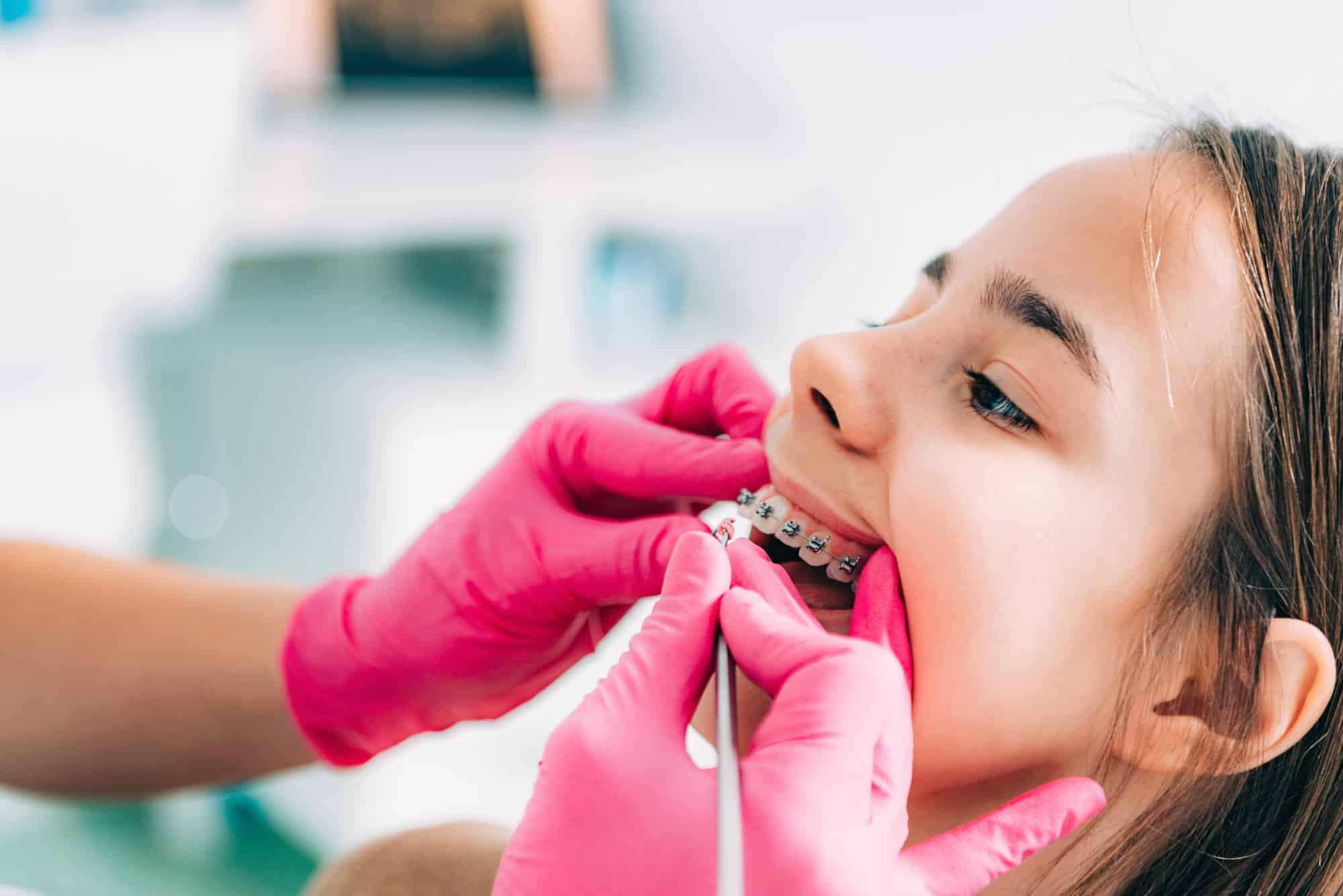Oral health is an essential part of overall health; unfortunately, you can do a lot of lasting damage from a young age. As a result of both genetic and environmental, nearly half of all children need braces at some point. Fortunately, we live in a world with both preventative and teeth-straightening options that are widely available to those in need. Here's how to know when it's time for your child to get braces.
1. Crowded Teeth
Crowded adult teeth can grow in, causing pain or discomfort for your child. If the adult teeth grow in and are too close together, your child likely needs braces to address the issue.
Otherwise, teeth can begin to turn sideways while growing. This can lead to your child developing a lisp or experiencing discomfort while chewing in the long term. If you're unsure if your child's teeth are crowded, ask your dentist as soon as possible. If not addressed in time, crowded teeth can lead to other oral health issues.
2. Excessive Gaps
If your child's teeth grow in and you notice excessive gaps between their teeth, then they will likely need braces. Gaps are one of the most common reasons for using braces.
Now, if gaps form with their baby teeth, it isn't a tell-all sign that they will need braces in the future. Often, adult teeth will fill in the gaps naturally and permanently once they grow in. However, if enough adult teeth have grown and there are gaps between multiple teeth, then it's likely time to get braces. Talk to your dentist once their adult teeth are in to see what's right for them.
3. Underbites and Overbites
If your child develops an underbite or an overbite, it should be fairly easy to tell early on. Remember, it's important to notice this when their adult teeth grow in.
Underbites are when the bottom teeth protrude past the limit upper teeth and overbites are the opposite. These typically develop at an early age and should be visible by the time your child's adult teeth begin to form.
While underbites and overbites are both very common, either one can cause several oral health issues, especially at an early age. If you or your dentist notices this developing, ask what they can do for potential treatment as soon as possible and expect braces in the future.
4. Early or Late Adult Teeth
Often, when a child begins losing their baby teeth too early or too late, it's a sign they will need braces. When your child's baby teeth take too long to fall out, this is a sign that their adult teeth are coming in crooked. If your child is 6 or 7 years old and has yet to lose a substantial number of baby teeth, then braces are likely in their future.
Conversely, when teeth fall out too early, this could be because of excessive tooth decay or problems with the underlying adult teeth. Talk to your dentist if you're concerned about this.
5. Mouth Breathing
This may seem out of place, but mouth breathing from a young age can cause crooked teeth. While this could be a sign of a few potential issues, we are meant to breathe through our noses. If your child is a regular mouth-breather from a young age, this can change the shape of their face and lead to spacing issues with their incoming teeth.
It's amazing how everything we do affects different parts of our bodies, but this can cause plenty of issues for your child's oral health. If your child regularly breathes through their mouth, make sure you bring them to the dentist regularly.
6. Thumb-Sucking
Thumb-sucking from an early age can force teeth to grow in the wrong direction, usually pulling forward. If your child sucks their thumb or uses a pacifier for too long, this can cause issues with their growing teeth. Make sure to correct these behaviors early on, and don't allow your child to use pacifiers past 18 months at the latest. Ideally, they should stop at around 12 months.
What Is the Right Age to Get Braces?
Ideally, your child should get braces as soon as possible once their adult teeth are in. Age 9 to 10 is the perfect age for most children, but again, the sooner, the better.
For most people, age 9 through early high school is the perfect time to straighten teeth. Their bodies are still malleable, they can recover easily, and they're ready for social acceptance. Essentially, there's no such thing as "too late," but there is an ideal period for most.
However, there are many cases where an orthodontist may want to delay braces. It depends on too many factors to give a one-size-fits-all approach. You'll have to schedule an appointment to know for sure!
How Long Will They Need to Wear Braces?
Of course, this entirely depends on the child and their needs. Typically, most people will only need to wear braces for one to three years, but it could be longer, depending on their needs. Again, you will have to speak with your orthodontist about your child's exact needs.
Visit a Dentist Today
Now that you know some of the most common signs, see if it's time to get braces for your young one. The sooner you do it, the easier it will be for your child, their dentist, and your budget.
Stay up to date with our latest dental care tips, and don't hesitate to contact us with any questions or to schedule a free consultation today!
